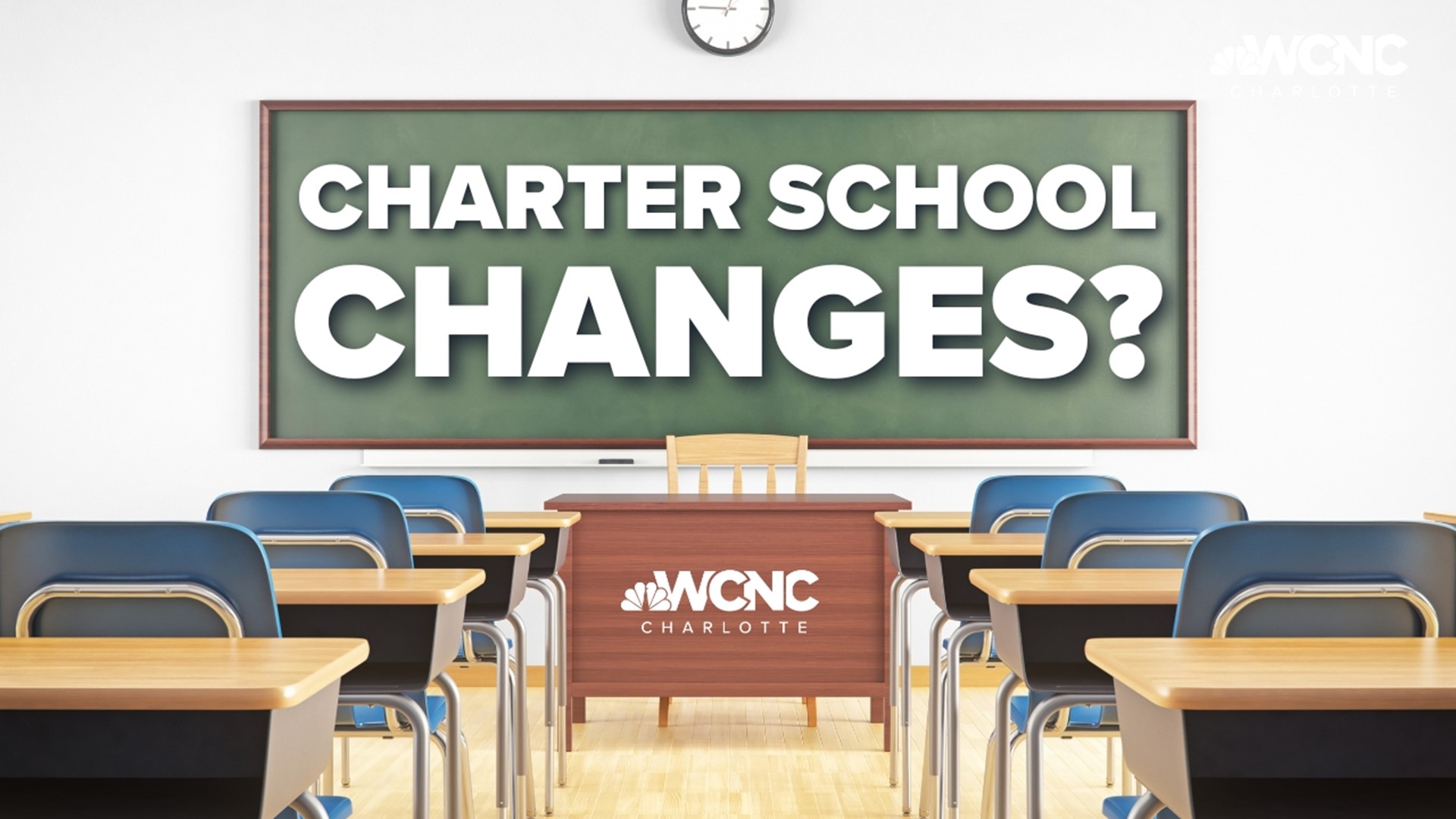RALEIGH, N.C. — House Bill 618, a bill that would change the way charter schools are approved in North Carolina, moved closer to a full vote in the state Senate on Wednesday.
The bill passed out of a senate education committee Wednesday morning.
If it becomes law, HB 618 would shift the authority to approve and deny charters from the North Carolina State Board of Education to a new Charter School Review Board. This shift in power could open a path for dozens of new charter schools in the state.
Currently, the final power to approve and deny new charter schools in North Carolina lies in the hands of appointed state board members. Charter school advocates call that process inefficient.
"The process is very duplicative," said Lindalyn Kakadelis, executive director of the North Carolina Coalition for Charter Schools. "And we want to make the process easy for the State Board of Education members. They have lots and lots to cover."
Currently, the Charter Schools Advisory Board, which holds no voting power, can only recommend a charter to be approved or denied. HB 618 would transform the advisory board into the Charter School Review Board, which would be able to make those final decisions on applications and renewals.
Critics of the bill say it would give the state legislature too much control over charter school applications and reviews.
"I think we should all question why they want that change," said Jennifer De La Jara, a Charlotte-Mecklenburg Board of Education member. "Because there are reasons why. And I don't have all the answers. But certainly, I think it's incumbent upon us as the residents of North Carolina to ask why such a drastic shift, and wanting to get more and more power."
The new review board would have 11 members, at least eight of whom would come from the Republican-controlled General Assembly. The North Carolina State Board of Education, which currently approves and denies applications, is majority Democrat-appointed.
Historically Republicans have voted for larger expansions of public charter schools.
Charter school advocates reject the notion of a power shift.
"It will streamline the process," Kakadelis said. "and we want to see that happen and take a load off the state board."
The state board has seen pushback for what some have called drawn-out timelines to approve charter schools. The state board has also denied charter school applications despite recommendations from the Charter School Advisory Board to approve them.
This most recently happened to a proposed charter school in Union County set to be named American Leadership Academy-Monroe. ALA Monroe applied to become a charter school on an accelerated timeline to open in the 2023 school year.
ALA Monroe's nonprofit board of directors would work in conjunction with Charter One, LLC, a for-profit company.
"This is a very, very rapid expansion of charter schools in North Carolina, and with large numbers of students affected, and this is another quick opening," one board member said prior to an initial no vote in December.
The board member was referencing Charter One's footprint of operating other charter schools. At the time of its application, Charter One operated 16 schools in Arizona, one school in Nevada, three schools in South Carolina, and five schools in North Carolina.
"And I have concerns that we don't really know enough about the academic performance in these schools to move forward with another one," another board member added.
Two North Carolina state senators filed legislation to try and force the North Carolina State Board of Education to change a decision it's made about the charter school. Senate Bill 230 would have reversed the board’s decision to deny the 2022 Acceleration Charter School Application for ALA-Monroe.
In an op-ed for the Carolina Journal, Michael Way, the southeast division president for Charter One, cited political reasons why the charter application was denied. Without providing proof or names, Way was likely referencing the no-votes for the charter by NCSBE members who were appointees of Democratic Gov. Roy Cooper. The lawmakers who filed the bill are both Republicans.
In two separate votes, one in December and another in January, the NCSBE voted against the recommendation of the North Carolina Charter School Advisory Board to approve the charter.
Applicants for charter schools would have the right to appeal Review Board decisions to the State Board of Education. However, the State Board of Education would have the final authority to deny an appeal.
Current law gives the State Board of Education the authority to approve or deny charter school applications without the right of appeal except if the appeal alleges and proves that NCDPI in its review of the charter appeal violated State or Federal laws in its application decision.
A Charlotte-area charter school also attempted and failed its bid to appeal its non-renewal of a charter this year. The North Carolina State Board of Education voted in May to officially revoke the charter of Eastside STREAM Academy in east Charlotte.
The state cited failing grades, staff turnover, and fiscal mismanagement as reasons to not renew the school's ability to operate and receive state funding
"We need oversight," said De La Jara. "And if some of these local charter schools are not performing, and they're harming our students, then those charters need to be revoked."
The bill now heads to the Senate Rules and Operations Committee.
Contact Shamarria Morrison at smorrison@wcnc.com and follow her on Facebook, Twitter and Instagram.

